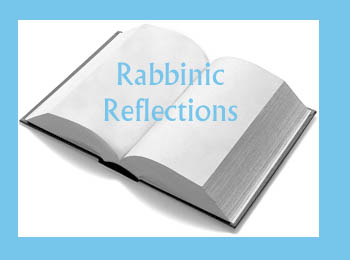Sitting at the Pesach seder and reciting the words “B’chol dor vador, omdim alaynu l’chalotaynu,” “In every generation, they rise against us to destroy us,” I couldn’t not help thinking about the rabbi and three children mercilessly murdered at their Jewish school in France. Will this hatred ever cease?
Yom Hashoah is upon us again, and rather than simply going through the motions of lighting candles and reciting poems, I believe we need to reflect on what we can do to usher in a new messianic age, free of hate and where Israel will find peace and serenity. How can we achieve this utopia?
The Ben Ish Chai traces the devastating effect of sinat chimam – senseless hatred among ourselves – to biblical history, which we re-enact at the seder.
The third of the four questions in the Hagaddah asks: “On all nights of the year, we do not dip food even once – but on Pesach night, we dip twice.” This refers to dipping vegetables in salt water (karpas) and maror (bitter herbs) in charoset (mixture of wine, nuts, etc.).
The Ben Ish Chai says these two dippings remind us of the first two dippings in Jewish history.
The first evokes the story of the desire of Jacob’s sons to rid themselves of their brother, Joseph. They take his coat, dip it in the blood of a goat and present it to their father.
So the first dipping on the night of Pesach is to remind us of the horrific plague of hatred among our own brothers, which we have suffered from throughout our history.
The second dipping at the seder reminds us of the dipping of blood in a bunch of hyssop and smearing it on the doorposts of the Jews at the outset of the 10th plague.
The Ben Ish Chai says it’s no coincidence the Torah uses the expression agudat ayzav (a bunch of hyssop), the first word of which is derived from the word agudah – unity.
The redemptive process came about as a result of the unity of the Jewish people. This display of unity was an absolute prerequisite to redemption, because it acted as a tikkun – a collective response and correction – to the hatred the brothers exhibited toward Joseph. The dipping of the hyssop branch and dabbing the blood on the doorposts corrected the dipping of Joseph’s coat.
The Ben Ish Chai concludes that if we’re serious about bringing about the final redemption, we, too, must correct that symbolic dipping of Joseph’s coat and bring about an era of Ahavat Yisrael, unconditional love among the entire Jewish nation.
The lingering effects of sinat chinam prevents the messianic age from happening. We’ll honour the memories of the millions who were murdered in the Shoah and those murdered by Arab terrorists by kindling lights of Torah and mitzvot, and by providing affordable Jewish education and ceasing to fund projects that have little or nothing to do with preserving our Jewish heritage.
Most importantly, we must find the ability to extend our hands in the true spirit of achdut – unity – so that God will surely bless us with the final redemption.
Rabbi Moshe Stern is spiritual leader of Shaarei Tefillah Congregation in Toronto.
